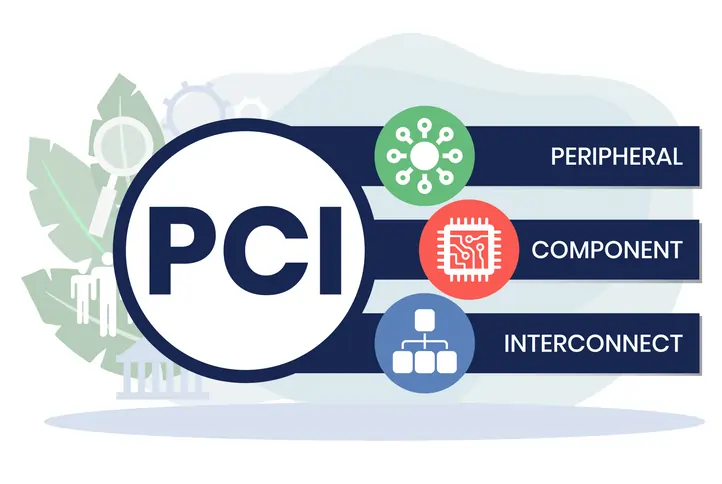
Every business that accepts card payments needs to follow PCI DSS rules. Choosing the right PCI compliance solution is the first step in protecting cardholder data and avoiding costly violations.
However, there are many PCI solutions available in the market. So, how do you select the right options based on your business needs? That’s what we are going to cover in this blog.
Here is why PCI compliance is important for businesses
Why is PCI compliance important?
PCI DSS stands for Payment Card Industry Data Security Standard. It is a set of security rules designed to protect cardholder data during and after payment transactions. PCI DSS is mandatory for businesses handling cardholder data. Because non-compliance can lead to problems like:
· Fines from card networks
· Suspension of payment services
· Reputation damage
Did you know?
According to IBM's Cost of a Data Breach Report 2024, a single data breach now costs businesses an average of $4.9 million. This makes PCI compliance more critical.
In the UK, PCI compliance UK guidelines are enforced by acquiring banks and card brands. That’s why businesses must work with a validated solution to meet these local requirements.
Quick fact
According to Verizon’s 2024 Payment Security Report, only 43% of organisations maintained full PCI DSS compliance.
How to Choose the Right PCI Compliance Solution
Now that you know why PCI compliance is crucial for business, let’s see how to pick the right provider:
Step 1: Understand your business environment first
The first thing you need to do is understand your current payment setup. Are you taking payments online? Over the phone? In person? Or all three?
Because the right solution should always support your exact payment methods. This way, you don’t have to worry about making any major system changes.
Step 2: Local compliance and global coverage
If your business is based in the UK, your PCI solution should meet local compliance rules. If you operate internationally, it should also follow global PCI standards.
So, make sure you ask your provider these important questions.
· Do they support regional audit processes?
· Can they help you complete the Self-Assessment Questionnaire?
· Do they offer UK-based data centers or local support?
This is especially important if you deal with cross-border PCI compliance payment flows.
Note
In the UK, many businesses also require tools that comply with local data handling laws like GDPR alongside PCI.
Step 3: Audit and reporting tools
The right PCI solution should make audits easier. This is important because real-time tracking can help your team spot gaps before an audit deadline. So, here are the key features you must consider –
· Real-time compliance tracking
· Automated log collection
· Pre-built templates for the report on compliance
Step 4: Don’t overlook vendor support
Finally, don’t base your decision on features alone. Consider how much help the provider offers once you sign up.
For example
· Do they provide onboarding support?
· Is help available during an audit?
· Is the documentation clear and up to date?
A solution that looks great on paper will not deliver much value if it leaves your team confused or unsupported when an issue comes up.
Key features to look for in a PCI compliance solution:
Full coverage of PCI DSS requirements
A good PCI compliance solution should address all 12 core requirements of the standard. This includes the following,
· Securing networks and systems
· Protecting stored cardholder data
· Managing access controls
· Monitoring and logging activities
· Maintaining security policies
Some solutions cover only a part of the process. Make sure the one you choose supports your full compliance scope.
Support for your payment environment
Your solution should match how you accept payments.
If you accept phone payments, then look for PCI compliance payment tools that mask or block card data during calls.
For online stores, you must choose a solution that includes e-commerce script monitoring and real-time threat detection.
If your business operates in both online and offline modes, go with a unified platform that supports all channels.
Solutions like RevoPCI’s agent-assisted payments help businesses keep phone payments PCI compliant by preventing sensitive data from ever entering the system.
Simplicity and integration
PCI compliance can be complex for small and mid-size businesses. So, make sure you look for a solution that is easy to set up and integrates with your existing tools and platforms.
This might include,
· Pre-built connectors for your CRM or payment gateway
· Dashboards for tracking compliance tasks
· Alerts for vulnerabilities or audit gaps
Final thoughts
Choosing the right PCI compliance solution means balancing security, usability and fit for your business. A strong platform should cover all PCI DSS requirements and simplify ongoing audits.
Start by identifying your gaps, compare vendors carefully and choose PCI solutions that prepare your business for long-term compliance.
Need help finding the right tool? Talk to a PCI expert or request a demo today.


